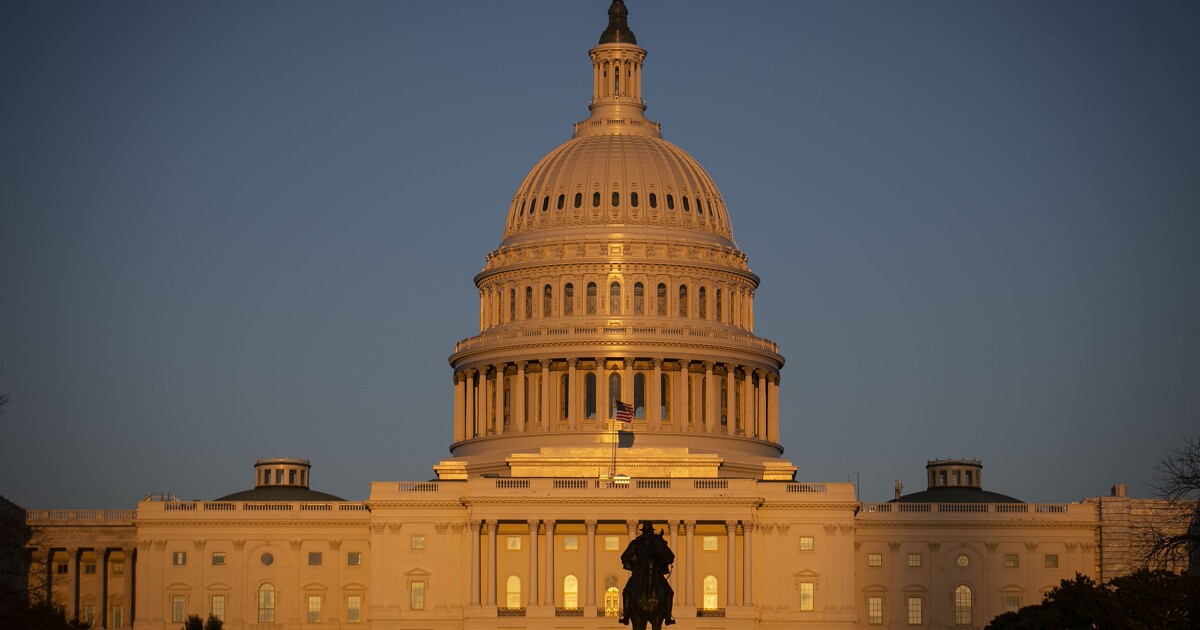

The Senate is plotting its next move in its looming spending showdown with the Republican-controlled House as Appropriations Chairwoman Patty Murray (D-WA) and Ranking Member Susan Collins (R-ME) work to bring a package of three bills to the floor in September.
Senate Majority Leader Chuck Schumer (D-NY) and the leaders of the Appropriations Committee are considering moving forward with bills that would fund military construction, agriculture spending, and one other bill, according to aides involved in the effort.
DESANTIS SHOWCASES ABILITY TO GOVERN WITH HURRICANE RESPONSE
Ahead of the August recess, the panel approved all 12 bills, setting them in line with the caps laid out in the debt ceiling deal negotiated by President Joe Biden and House Speaker Kevin McCarthy (R-CA). The agreement limits overall national security spending in fiscal 2024 to $886 billion, which is roughly a 3% increase from current levels. In fiscal 2025, defense spending would be capped at $895 billion, a 1% increase from the previous year.
“The Senate Appropriations Committee has passed all 12 bills to fund the government with strong, sometimes unanimous, bipartisan support. The Senate will work to get as much done as possible in September. To avoid a government shutdown, the House should follow the Senate’s lead and pass their appropriations bills in a bipartisan way,” Schumer said in a statement to Politico.
The looming floor action set up a clash with the GOP-led House, where many members opposed the debt ceiling deal and refused to vote for it. An influential block of hard-line House conservatives is having a major influence on the spending process, and as a result, McCarthy and GOP leaders are preparing bills with less spending than previously agreed to.
The full House managed to pass its military construction appropriations bill before leaving for recess, advancing only one of 12 of its must-pass spending bills before leaving town and returning on Sept. 12.
Another complicating factor: House conservatives have insisted that leadership vote on 12 separate government funding bills instead of a large “omnibus” spending bill, which typically speeds up the process.
President Joe Biden’s new supplemental request for roughly $40 billion for additional assistance for Ukraine, funding for border policies, and disaster recovery efforts is making the effort even more complicated.
“We look forward to reviewing the administration’s supplemental funding request carefully. Whether it’s supplemental funding to defend against Russian aggression in Ukraine, to strengthen our global competitiveness, to provide disaster relief for communities across America, or critical resources to stop the flow of fentanyl and address needs at the border — these are important priorities,” said Murray and Collins in a joint statement in early August.
“We will be consulting with Senators on both sides of the aisle, on and off committee, to craft a bill that will pass the Senate.”
Earlier this week, McCarthy hit Senate Republicans for trying to spend above the caps set in the debt ceiling bill and emphasized the need to pass the Homeland Security appropriations bill during a GOP members-only call on Monday.
On the call, McCarthy said, “Senate Democrats and Republicans are working very closely together to spend more money” and said that for the House to be strong in negotiations, they need to “hone our message on the issues that we care most about,” which includes the borders and energy.
This all as the House and Senate are juggling passing a short-term spending bill before the Sept. 30 deadline along with the supplemental funding requests, giving the chambers more time to negotiate. However, a short-term deal could pose a problem as members of the House Freedom Caucus have explicitly said they would not support a short-term continuing resolution and do not fear a government shutdown.
Senate Minority Leader Mitch McConnell (R-KY) predicted there will have to be a short-term continuing resolution to fund the government until early December during a speech to the Northern Kentucky Chamber of Commerce Government Forum on Wednesday.
CLICK HERE TO READ MORE FROM THE WASHINGTON EXAMINER
“It’s a pretty big mess. The speaker and the president reached an agreement, which I supported in connection with raising the debt ceiling to set the spending levels for next year,” McConnell said.
“The House then turned around and passed spending levels that were below that level. Without saying an opinion about that, that is not going to be replicated in the Senate.”





